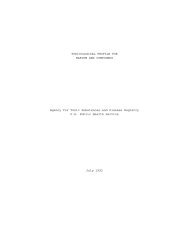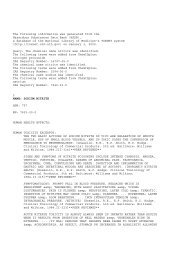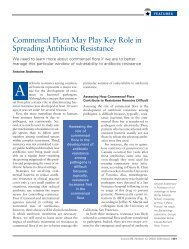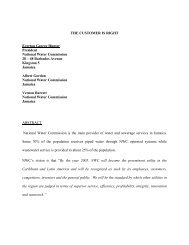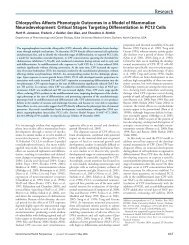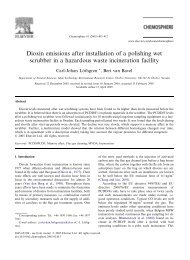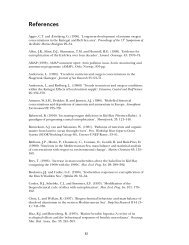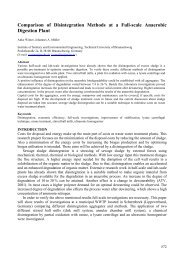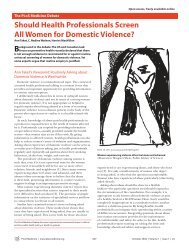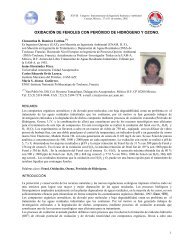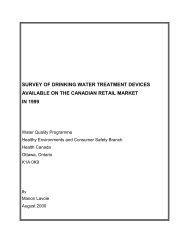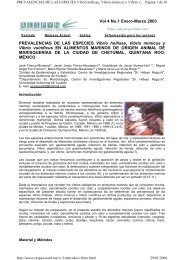REPORT ON THE SOCIAL DETERMINANTS OF HEALTH ... - bvsde
REPORT ON THE SOCIAL DETERMINANTS OF HEALTH ... - bvsde
REPORT ON THE SOCIAL DETERMINANTS OF HEALTH ... - bvsde
Create successful ePaper yourself
Turn your PDF publications into a flip-book with our unique Google optimized e-Paper software.
. Sharing of experience in this area, development of communication channels and<br />
participation with organizations and/or methods for exchange of information between the<br />
organizations and the government<br />
c. Mechanisms for public involvement and its impact<br />
d. Care rights of various groups and communities that are clients in the clinics and<br />
administrative offices of health centers<br />
e. Make data on financial resources available and ways of avoiding double taxation in the<br />
United States.<br />
2. Information needed on methodologies<br />
a. Methods that facilitate the search for information on processes and organizations working<br />
in similar fields. This information must be quality data that is transferred transparently.<br />
The subjects most sought through information exchange are:<br />
• Overcoming the inequities and inequalities affecting the health of society’s most<br />
at-risk sectors, especially women<br />
• Access to health services for all persons without any discrimination whatsoever<br />
b. Data on specific cultures to permit appropriate strategies for the autonomy of the groups,<br />
and that it be organized by gender and region<br />
c. Scientific and statistical evidence, indicators, and methodology to analyze experience and<br />
serve as a basis for reflection and for conceptual progress in the subject<br />
d. Methodologies and strategies for actions for inclusion and involvement by social<br />
organizations or others in order to break the patterns of exclusion and inequality<br />
3. Information and statistics needed on more specific subjects to enable the organizations to work<br />
in the area<br />
a. Victims of violence and their families<br />
b. Rights to health, nutrition, mental health, natural medicine, public health, health policies<br />
c. Monitoring health indicators, such as inequities in health services<br />
d. Indigenous people by gender and region<br />
e. Poverty levels, unemployment, education level, costs for treatment<br />
f. Development and use of technologies<br />
g. Information and training on:<br />
• HIV<br />
• Tuberculosis prevention<br />
• Women’s health<br />
• Sanitation<br />
• Health of African descendents<br />
• Risk assessment indicators<br />
h. Precarious conditions that affect the cognitive, psychomotor, psycho-affective, and social<br />
development of boys and girls<br />
i. Information of the highest scientific and philosophical quality<br />
j. Working conditions and their impact<br />
k. Financing of health activities and support for rural social movements<br />
l. Prevention of diseases such as cancer, Hansen’s, mental illness, and those caused by<br />
accidents and violence<br />
m. Data and previous registers on the prevalence of diseases in all populations, including<br />
indigenous populations<br />
n. Information on risk levels and access to indicators for risk assessment<br />
17




